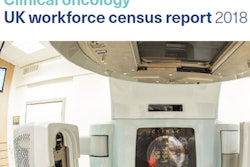The U.K.'s National Health Service (NHS) trusts are struggling to develop contingency plans for Brexit because of continuing uncertainty about the U.K.'s future relationship with the European Union, according to a report published on 20 December in BMJ Today.
The report included responses from 182 NHS trusts in England and 21 health boards across Scotland, Wales, and Northern Ireland. Of these, only 9% of English trusts reported having established committees to oversee preparations for Brexit. Out of the 21 health boards that responded, 14 have set up similar committees.
The Department of Health and Social Care, which coordinates areas such as medicines, food, medical devices, and clinical consumables, has said trusts are responsible for their own contingency activity, BMJ said. Although most trusts have been unable to develop plans beyond basic Brexit scenarios, some are taking action to support their European Union staff by paying for them to achieve settled status, while others have issued instructions not to stockpile medicines in the weeks leading up to Brexit, the report found.
The picture is bleak, according to Dr. Martin McKee of the London School of Hygiene and Tropical Medicine.
"Even though ministers have been unable to provide reassurance that patients will not die as a result of their policies, they have been unable to offer any useful guidance for trusts," McKee said in a statement released by BMJ. "It is inconceivable that the NHS will be prepared for anything other than a situation that, in effect, continues the current arrangements by the end of March 2019."



















